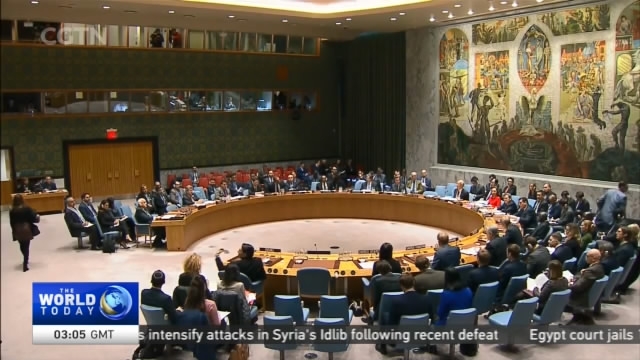
12:17, 15-Jan-2018
India-Israel Ties: Prime Ministers Modi and Netanyahu meet in New Delhi

Israeli Prime Minister Benjamin Netanyahu is on a week-long trip to India. The visit is the first-of-its-kind in 15 years. Both countries have their major differences, but Netanyahu and his Indian counterpart Narendra Modi may focus on what they have in common. CGTN's Stephanie Freid reports.
A lovefest - that's how the relationship between the Indian and Israeli Prime ministers is often described. The affection picked up in New Delhi on Sunday where it left off in Jerusalem last July when Prime Minister Modi became the first Indian leader to visit Israel. The connection seems unlikely - India is historically pro-Palestinian, home to the world's third largest Muslim population and does eighteen percent of its business in the Arab world - only 1% of business is with Israel. The pillars of the association are weapons sales in the form of AWACS electronics, anti-tank missiles, Barak air-defense missiles, drones and radar systems.
STEPHANIE FREID TEL AVIV "Tremendous focus has been placed on the fact that weeks before this official visit, India cancelled a half a billion missile defense contract with Israel. The experts say that's not an indication of how the two sides are getting along."
CHUCK FREILICH FORMER ISRAELI DEPUTY NATIONAL SECURITY ADVISER "Overall the military relationship has been expanding very nicely. India is the second largest market for Israeli arms. Alright so this deal didn't work. That's unfortunate. I understand that there's a new deal for another AWACS plan."
Collective pro-Israel eyebrows lifted in December when India voted at the UN to reject recognition of Jerusalem as Israel's capital. The rejection is not hindering evolving ties. India's leaders are in a delicate position: the country buys arms from and signs bi-lateral deals with Israel while strategically partnering with Gulf States and hosting one hundred and eighty million Moslems. That may explain why Indian Prime Minister Modi is scheduled to visit the Middle East, including Palestine, after Israel's delegation departs. Stephanie Freid, CGTN, TEL AVIV.

SITEMAP
Copyright © 2018 CGTN. Beijing ICP prepared NO.16065310-3
Copyright © 2018 CGTN. Beijing ICP prepared NO.16065310-3